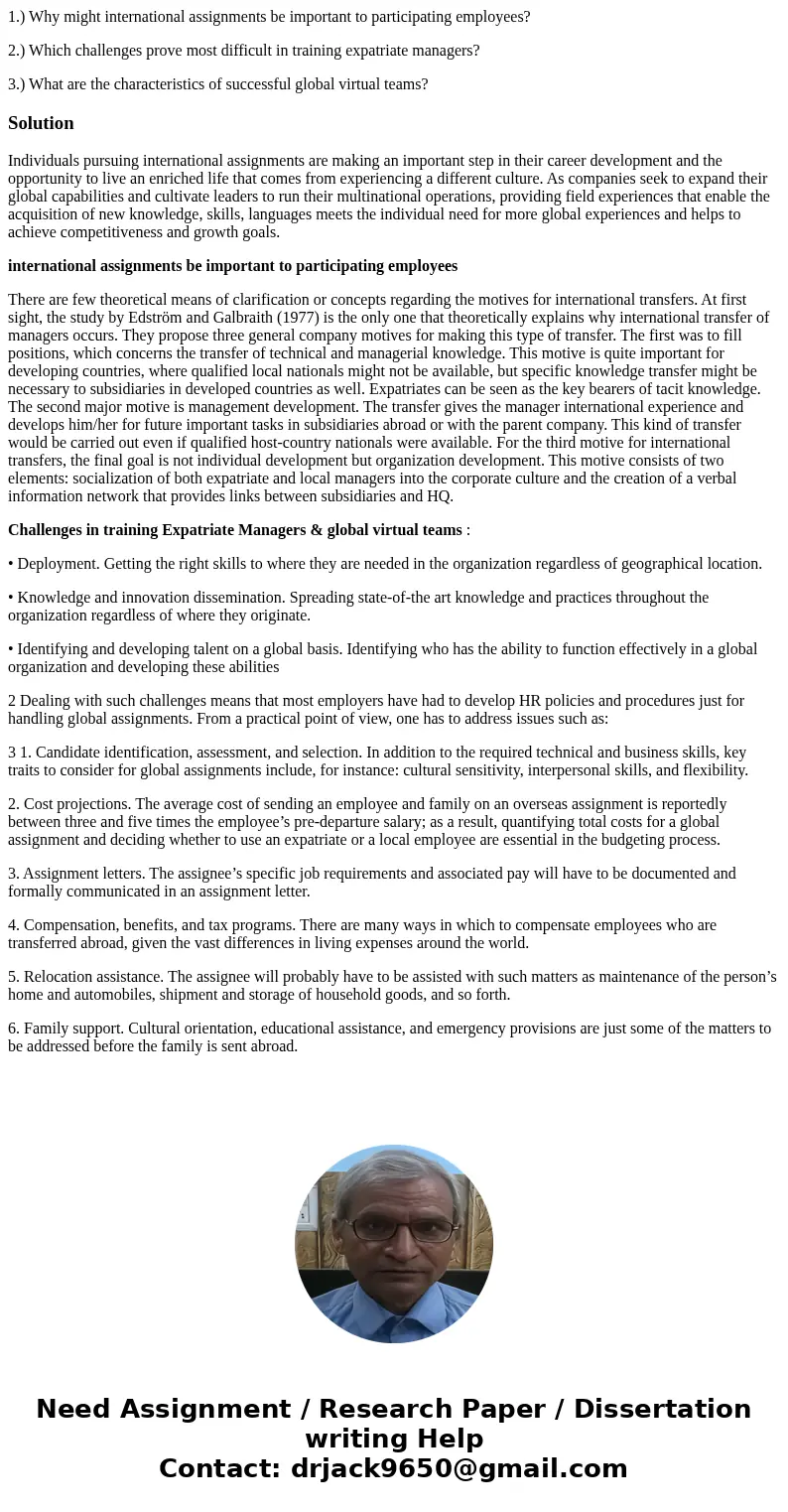1 Why might international assignments be important to partic
1.) Why might international assignments be important to participating employees?
2.) Which challenges prove most difficult in training expatriate managers?
3.) What are the characteristics of successful global virtual teams?
Solution
Individuals pursuing international assignments are making an important step in their career development and the opportunity to live an enriched life that comes from experiencing a different culture. As companies seek to expand their global capabilities and cultivate leaders to run their multinational operations, providing field experiences that enable the acquisition of new knowledge, skills, languages meets the individual need for more global experiences and helps to achieve competitiveness and growth goals.
international assignments be important to participating employees
There are few theoretical means of clarification or concepts regarding the motives for international transfers. At first sight, the study by Edström and Galbraith (1977) is the only one that theoretically explains why international transfer of managers occurs. They propose three general company motives for making this type of transfer. The first was to fill positions, which concerns the transfer of technical and managerial knowledge. This motive is quite important for developing countries, where qualified local nationals might not be available, but specific knowledge transfer might be necessary to subsidiaries in developed countries as well. Expatriates can be seen as the key bearers of tacit knowledge. The second major motive is management development. The transfer gives the manager international experience and develops him/her for future important tasks in subsidiaries abroad or with the parent company. This kind of transfer would be carried out even if qualified host-country nationals were available. For the third motive for international transfers, the final goal is not individual development but organization development. This motive consists of two elements: socialization of both expatriate and local managers into the corporate culture and the creation of a verbal information network that provides links between subsidiaries and HQ.
Challenges in training Expatriate Managers & global virtual teams :
• Deployment. Getting the right skills to where they are needed in the organization regardless of geographical location.
• Knowledge and innovation dissemination. Spreading state-of-the art knowledge and practices throughout the organization regardless of where they originate.
• Identifying and developing talent on a global basis. Identifying who has the ability to function effectively in a global organization and developing these abilities
2 Dealing with such challenges means that most employers have had to develop HR policies and procedures just for handling global assignments. From a practical point of view, one has to address issues such as:
3 1. Candidate identification, assessment, and selection. In addition to the required technical and business skills, key traits to consider for global assignments include, for instance: cultural sensitivity, interpersonal skills, and flexibility.
2. Cost projections. The average cost of sending an employee and family on an overseas assignment is reportedly between three and five times the employee’s pre-departure salary; as a result, quantifying total costs for a global assignment and deciding whether to use an expatriate or a local employee are essential in the budgeting process.
3. Assignment letters. The assignee’s specific job requirements and associated pay will have to be documented and formally communicated in an assignment letter.
4. Compensation, benefits, and tax programs. There are many ways in which to compensate employees who are transferred abroad, given the vast differences in living expenses around the world.
5. Relocation assistance. The assignee will probably have to be assisted with such matters as maintenance of the person’s home and automobiles, shipment and storage of household goods, and so forth.
6. Family support. Cultural orientation, educational assistance, and emergency provisions are just some of the matters to be addressed before the family is sent abroad.

 Homework Sourse
Homework Sourse